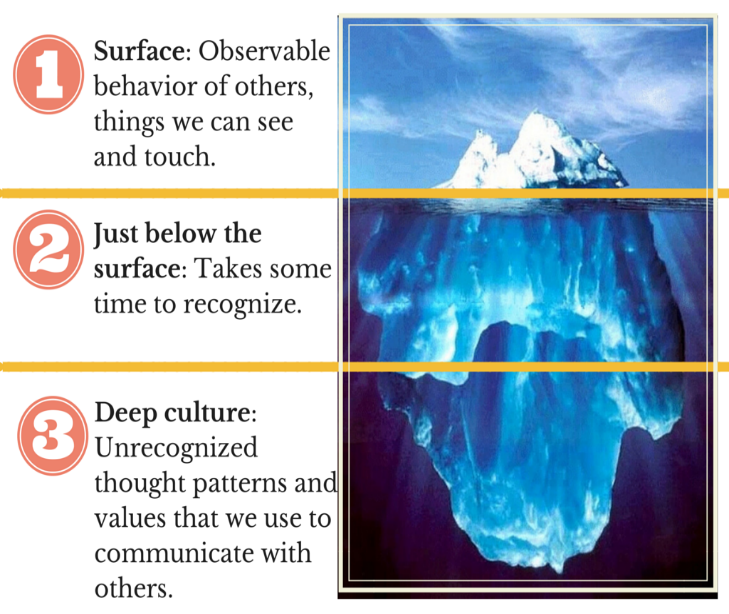Back to: Ensuring Cultural and Linguistic Competence
Cultural competence is “a set of congruent behaviors, attitudes, and policies that come together in a system, agency, or among professionals and enable that system, agency or those professions to work effectively in cross-cultural situations.”1 Cultural competence is not limited to making sure that staff members don’t yell racial slurs or use other derogatory language (though of course this is important!). Cultural competence will result in all persons served feeling comfortable and receiving satisfactory customer service at the same rate as clients who happen to share demographic features with the majority of the employees at an agency. That is to say that if most workers within an organization are women who are straight, cis gender, middle class, Protestant, English speaking, non-disabled, and White, clients who do not share these demographic characteristics will still receive care at the same frequency and quality as any client who would have these characteristics in common with the workers.

Culture is a complex component of each person’s identity. In the US, there is so much variety in regards to race and ethnicity, religion, country of origin, language, interests, community groups, etc. that the task of understanding the intricacies of each culture an agency may serve can seem overwhelming. Unfortunately, the impact of these intricacies is not always appreciated and especially in behavioral health can be grossly misunderstood. Cultural differences include more than which holidays people celebrate and what food they eat, and a failure by organizations and workers to recognize this will certainly lead to cultural clashes. Such clashes can result in a lack of outreach to a particular community, misdiagnoses, over or under-prescription of psychotropic medications, premature discharge due to “noncompliance,” or a variety of other negative outcomes.
- Cross, T. L., Bazron, B. J., Dennis, K. W., & Isaacs, M. R. (1989). Towards a culturally competent system of care: A monograph on effective services for minority children who are severely emotionally disturbed. Washington, DC: Georgetown University Child Development Center.